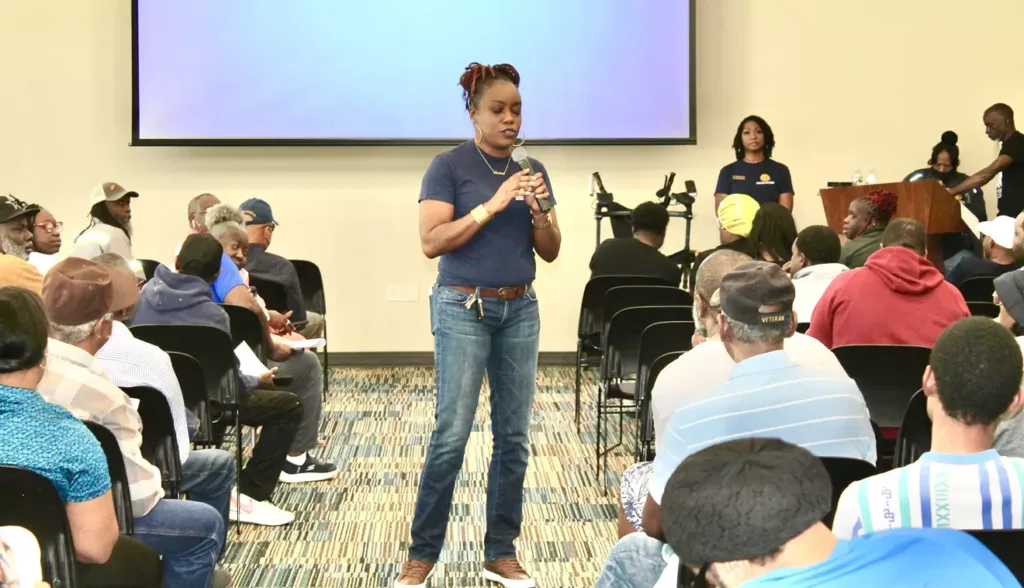The Chatham County District Attorney’s Office held its quarterly expungement clinic at the Southwest Branch Live Oak Library located at 14097 Abercorn St. in Savannah, Georgia on Friday.
The expungement clinic is in partnership with DeVetter Lawfirm, Georgia Legal Services, Deep Center, and Goodwill. Chatham County District Attorney Shalena Cook Jones organized and managed the clinic alongside her staff.
When participants walk in, they are instructed to sign in, fill out an application form, provide their drivers licenses or identification. The staff uses their IDs to pull up their criminal record in the Georgia criminal information system. If a charge detected on their record is eligible for expungement, they can speak with one of the attorneys that were available.
Expungements, more commonly referred to as record restrictions, allow individuals with misdemeanors or nonviolent offenses to restrict those charges on their criminal records. According to the Georgia Justice Project, “People can restrict and seal charges on their criminal records that did not result in a conviction, such as dismissal, nolle prosse, and acquittal.”
Having these offenses on criminal records can hinder an individual’s chances of securing a job, applying for public housing, college, and the military. Georgia is one of the 49 “at will states,” which means that employers or employees can end employment for any reason. However, according to the Georgia Department of Labor,
“Unless you have a contract agreement with your employer for a specified length of service, either you or your employer may terminate the employment relationship at any time, with or without cause, for any reason or no reason at all, with the exception of illegal discrimination.”
In 2020, Georgia Governor Brian Kemp signed SB 288, also known as the “second chance bill” into law. The law gave individuals the right to restrict eligible convictions on their criminal records. The bill took effect on January 1, 2021.
“1 in 3 Americans don’t realize that they have something on their criminal report,” DA Public Information Officer Kathy Wideman said. “They should check their criminal report like they would check their credit report all the time.”
Felony convictions, however, such as murder, sex crimes, and crimes against children cannot be restricted on criminal records.
The previous expungement clinic was held in October of 2024, which drew a crowd of 250 people, and resulted in 237 people with clear records.
However, since this year’s crowd was larger than anticipated, staff began moving participants from the downstairs location to upstairs. This year, the clinic served over 600 people.
We Love Cann Park Association President Mr. Morris Pollard was among the crowd of participants at the clinic.
“I had a group of young men that went through a course with me, and now they’re all productive citizens with a CDL license, they also have jobs or entrepreneurships because they got expungements. They also have free will in doing what they want to do,” Pollard said.
Participants were also provided with refreshments and could indulge in hamburgers and hotdogs that were grilled outside the library.

